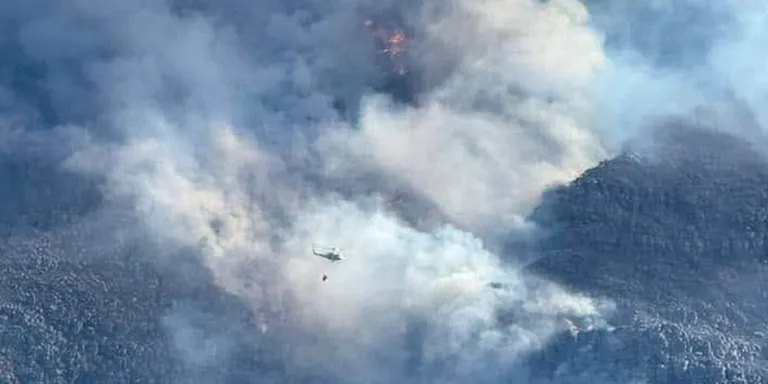By Johnathan Paoli
Cape Town is reeling from a devastating wave of fires that have swept through informal settlements and vegetation areas, leaving thousands homeless and exposing critical gaps in fire prevention and response strategies.
The city’s Fire and Rescue Service, in collaboration with local and national partners, has been working tirelessly to contain the blazes and provide relief to affected residents.
Speaking to Inside Politics on Tuesday, safety and security MMC Jean-Pierre Smith confirmed that all fires had been extinguished, with mopping-up operations and the clearing of informal areas ongoing.
However, he warned that the situation remained precarious as the city braced for more challenges during the fire-prone summer season.
“The past summer in particular was a massive drain on resources, particularly in the South Peninsula. But it’s important to acknowledge that the public has a role to play. We need everyone to be on high alert.
“I want to ask that they report any signs of fire, no matter how big or small. Don’t assume that someone else has made that call. Fire prevention is the ultimate goal, and it starts with all of us,” Smith said.
Wildfires in the peninsula and informal settlement fires in areas such as Langa, Masiphumelele, Nomzamo and Dunoon have tested the city’s resources.
They have displaced over 1,800 residents and destroyed hundreds of homes.
He said 143 structures were destroyed and 544 people displaced in Dunoon, while 297 households were affected and 682 persons displaced in Langa.
Masiphumelele had 86 structures completely destroyed, leaving over 450 people displaced, and fires in the Wag-n-Bietjie informal settlement in Nomzamo left 53 dwellings destroyed and 132 people displaced.
The City of Cape Town, with support from humanitarian organisations like Gift of the Givers (GOTG), has been providing emergency relief.
GOTG has conducted 12 fire response operations in 10 days, distributing hot meals, hygiene kits, blankets and building materials to assist displaced families.
Local churches and shelters have also opened their doors to fire victims.
However, challenges persist, with Human Settlements Minister Thembi Simelane acknowledging delays in delivering emergency building materials, missing the 24-hour disaster management guideline.
Congested living conditions in informal settlements, coupled with the lack of firebreaks and proper infrastructure, have exacerbated the crisis.
The city has appealed to President Cyril Ramaphosa to devolve the Emergency Housing Grant to municipal control to enable faster and more effective responses to such disasters.
Cape Town has also seen a sharp rise in vegetation fires.
Between October 2023 and January 2024, the Fire and Rescue Service recorded 7,190 vegetation fires, a 35% increase compared to the previous year.
A wildfire above Kalk Bay on Monday required the deployment of 72 firefighters, aerial support and ground crews from the Table Mountain National Park and Volunteer Wildfire Services.
Smith emphasised the importance of community involvement, particularly for residents along the “urban edge” and urged property owners to maintain adequate buffer zones and remove flammable materials around their homes.
The city is doubling down on fire safety awareness to mitigate future risks.
Residents are advised to follow safety measures such as keeping a “go bag” ready with essential items, maintaining accessible fire hydrants and clear roads, and installing and annually servicing fire safety equipment.
In informal settlements, measures include proper handling of paraffin stoves, secure placement of candles and maintaining a safe distance between structures to prevent the spread of rapid fire.
For businesses and property owners, compliance with the National Veld and Forest Fire Act, regular maintenance of fire equipment and adherence to the city’s community fire safety by-law were imperative.
Smith said the fires underscored the need for long-term strategies to address the vulnerabilities of informal settlements, with urban planning, improved infrastructure and community education remaining critical to reducing the risks associated with fire outbreaks.
Authorities have also called for stricter enforcement of regulations regarding open burning and the use of flammable materials during high-risk weather conditions.
Cape Town’s early warning systems, including the fire danger rating, are being promoted to encourage public vigilance.
Smith said that as relief efforts continued, Cape Town faced the dual challenge of addressing the immediate needs of displaced families, while implementing measures to prevent future tragedies.
He said with the combined efforts of government, humanitarian organisations and the community, the city was hopeful it would navigate this difficult period.
INSIDE POLITICS

